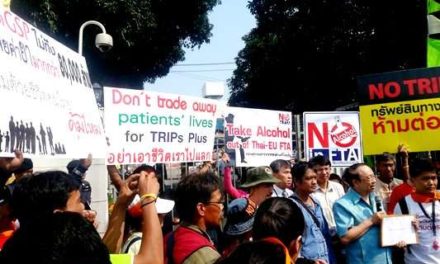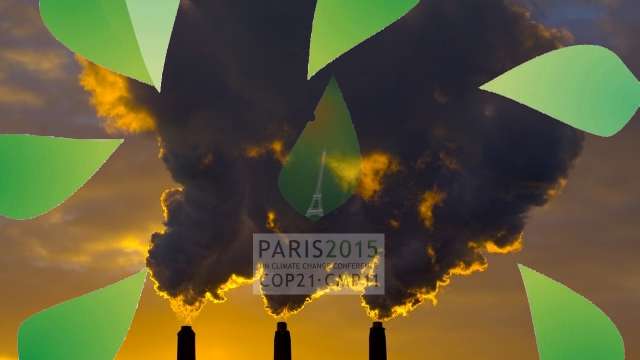The Thai Climate Justice Working Group attended the Review of Draft Thailand REDD+ Readiness-Preparation Proposal (R-PP) workshop on 7 March 2013, organized by the Forest Carbon Partnership Facility (FCPF) of the World Bank and the Lowering Emissions in Asia’s Forests (LEAF). Even though the organizers specified that the objective of the workshop was to provide an opportunity for CSOs, local communities and ethnic groups engaged in the REDD+ process to review the Thailand RPP draft, workshop participants learned in the afternoon session that the draft had already been sent to the FCPF Participants Committee (PC) since the Department of National Parks, Wildlife and Plant Conservation (DNP), the project implementing agency, was scheduled to present it to the PC in 2 weeks (the requirement is that the document be sent to the PC 3 weeks before the meeting). The workshop therefore could not lead to any amendments to the draft, even if it was unsuitable and contained incorrect information. The only possibility was to attach an appendix to the draft, or make presentations in the meeting to DNP, the Thai representative. This was the main reason why the representatives of the Thai Climate Justice Working Group, Banthat Mountain Land Reform Network and the Karen People Network had no option but to walk out of the meeting in disappointment.
Thai Climate Justice Working Group would like to summarize its comments and proposals on two main issues: that the participatory process was problematic and the content of the draft was defective in important substance. The Working Group would also like to propose that the parties involves, the PC, the World Bank and the Thai representatives take action to show responsibility.
What were the problems of past participation?
The participatory process carried out by the DNP from the outset to the last meeting on 7 March 2013 was not in compliance with the principles of democracy and good governance. The information was distributed to the participants with little time to prepare before the meeting. Many important stake holders were not invited to the previous meeting to gather opinions, particularly communities in conservation forests and the Thai Climate Justice Working Group, even though they have worked for many years at the national level and have interacted with the Ministry of Natural Resources and Environment on many occasions.
The principle of Free, Prior, and Informed Consent – FPIC, which is the right of indigenous peoples was mentioned and referred to by both the World Bank and the DNP requires that adequate information is received in advance. The fact that the draft proposal was sent to participants only a few hours before the meeting is a clear violation of this principle.
Moreover, for participants to express their independent opinions, the information given needs to be comprehensive. It was apparent that the technical information presented did not include perspectives other than those of the authors. No alternative analyses were sought to ensure true benefits; the past process involved limited and biased information.
The process could not therefore be called meaningful participation. Participants could not make useful comments, nor could they say whether they agree with the draft proposal or not. The PC therefore needs to take into consideration the fact that this R-PP draft has not undergone a meaningful participatory process according to the standards referred to by the World Bank.
What are the substantive defects in the content?
The draft R-PP needs to reflect the true situation in the country, but does not do so. The most important failing is the fact that there are many communities living in forests that have been declared conservation forests by the state and this has led to a great deal of ongoing conflict. Thailand is the only country in the world that is prosecuting for causing global temperatures to rise, known as the ‘global warming cases’. The R-PP merely raises this as a concern without providing any information. This misrepresents reality because the violent conflict between the people and the DNP, the state agency, needs to be urgently resolves, not just noted as a point of concern. This problem must be seriously addressed as a pre-condition before any new national and global instruments can be deployed in the communities. Unless there is a clear direction to redress the situation, projects such as REDD+ will merely worsen the conflict.
Consequently it is necessary to analyze the current situation thoroughly and include it in the draft R-PP. For example, how has the state’s declaration of conservation forest areas caused conflict with the communities? How much violence has occurred? In which areas? How many cases have been filed in the courts? What are the causes and what efforts have been made to resolve the situation? None of these details appear in the draft R-PP.
In the preparation stage, it is necessary to identify all options available in support of forest conservation, which may or may not include REDD+. It is not right to propose only one option for people to consider. The draft does not give due importance to community rights and the role of communities to lead in protecting the forest. It includes only a part of community rights that can be applied to REDD+. It therefore seems that the mention of the communities’ way of life is meant only to give legitimacy to REDD+.
Moreover, the draft should project the impact that a project such as REDD+ can cause and it is a legitimate right of the people to know. There are two levels of potential impact.
Level 1: The impact on the people living in forest areas in terms of the right to use the land and land tenure and ultimately the ownership of carbon. The draft does not indicate any guidelines or steps in clarifying this impact. Also, there is no analysis of the challenges that exist in obtaining the budget through market mechanisms.
Level 2: The impact on climate change mitigation. This is whether and how market mechanisms contribute to emissions reduction. For certain, the protection of the forest by the people can contribute to reducing carbon emissions, but the action would be meaningless if the reduction credits are sold to large businesses so that they can continue to emit greenhouse gases. Such issues are not analysed and addressed in the writing of the document. The people have the right to access such information before becoming engaged in the R-PP or REDD+ processes.
Demands
Due to the problems mentioned above with both the process and the structure of the content, the Thai Climate Justice Working Group proposed in the meeting of 7 March with the DNP to extend the time frame for the submission of the draft R-PP to the Worold Bank by two months in order to allow meaningful participation by the people. The Working Group was ready to participate in the design and preparation of the content for the participation process, to coordinate with people’s networks that had previously been neglected to join the process, as well as to adjust the structure of the content and fill in the missing gaps.
This proposal was rejected by the DNP and also by the World Bank. The reason given was that the PC’s deliberation on the draft R-PP had been scheduled and could not be postponed.
Under thse circumstances, the Thai Climate Justice Working Group demands that, as parties that facilitate the progression of this project, the Department of National Parks, Wildlife and Plant Conservation, the FCPF Participants Committee and the World Bank accept responsibility for the following.
1) Once it became known in the meeting of 7 March 2013 that the REDD+ process in Thailand up to the present time has lacked good governance and could not be called participatory due to the lack of participation of important stakeholders (i.e. the Land Reform Network and those affected by past actions of the state in forest conservation), the one-sided nature of the information provided, the tight time-frame allowed for processing (e.g. several hundred pages of documentation distributed only a few hours in advance), and the very limited time for comments (e.g. 10 minutes out of the entire meeting time), the World Bank should communicate this information to the PC in order for these problems to be addressed prior to the next stage of the process.
2) The DNP must undertake to organize a transparent, fair and meaningful public hearing at the national level with the participation of all parties, with information from different perspectives provided with adequate time in advance and allowing adequate time for comments and discussion. The results of the hearing must be documented transparently and made available for inspection as well forming the basis for revision of the draft R-PP. This must be done as soon as possible before the submission of the R-PP proposal to the PC for approval.
3) Prior to the national public hearing, at least 3 preparatory meetings must be supported in 3 different regions of the country under the same good governance principles as described in 2).
4) The content structure of the R-PP must be adjusted by:
(4.1) Stating the current situation regarding the forests with attention to the issue of the people’s rights in forest areas and existing cases of conflicts and violence in various areas as described above.
(4.2) Identifying ways to avoid conflict prior to the implementation of REDD+.
(4.3) Analysing potential concrete measures to ensure that the project will not result min violations of community rights, while promoting sustainable co-existence of people and forests.
(4.4) Analysing the strengths and weaknesses of REDD+ as a means of climate change mitigation and of sustainable and just forest conservation.
5) Eliminating untrue information, such as the references to various organizations’ participation in the process organized by the DNP, the vague references to a Climate Change Adaptation Master Plan and the incorrect citing of the Inpaeng Group’s project. The correct information can be gathered during the participatory process, which is still to occur.
Unless the World Bank takes steps towards a meaningful resolution of the abovementioned problems, rather than pressing ahead with the approval of the Thai draft proposal by the PC without substantial amendments, it will be complicit in a non-transparent and fraudulent process that takes advantage of the people.
Finally, the Thai Climate Justice Working Group is not and does not claim to be a representative of the people’s sector. We provide these comments as a group that has been monitoring REDD+ issues. The most appropriate method to solicit comments and opinions from the people is to open up a space for genuine public discussion, not merely for public relations purposes or give motivation to select organizations or groups.
15 March 2013
Thai Climate Justice Working Group
Contact: Jacques-chai Chomthongdi, Co-ordinator ([email protected])








